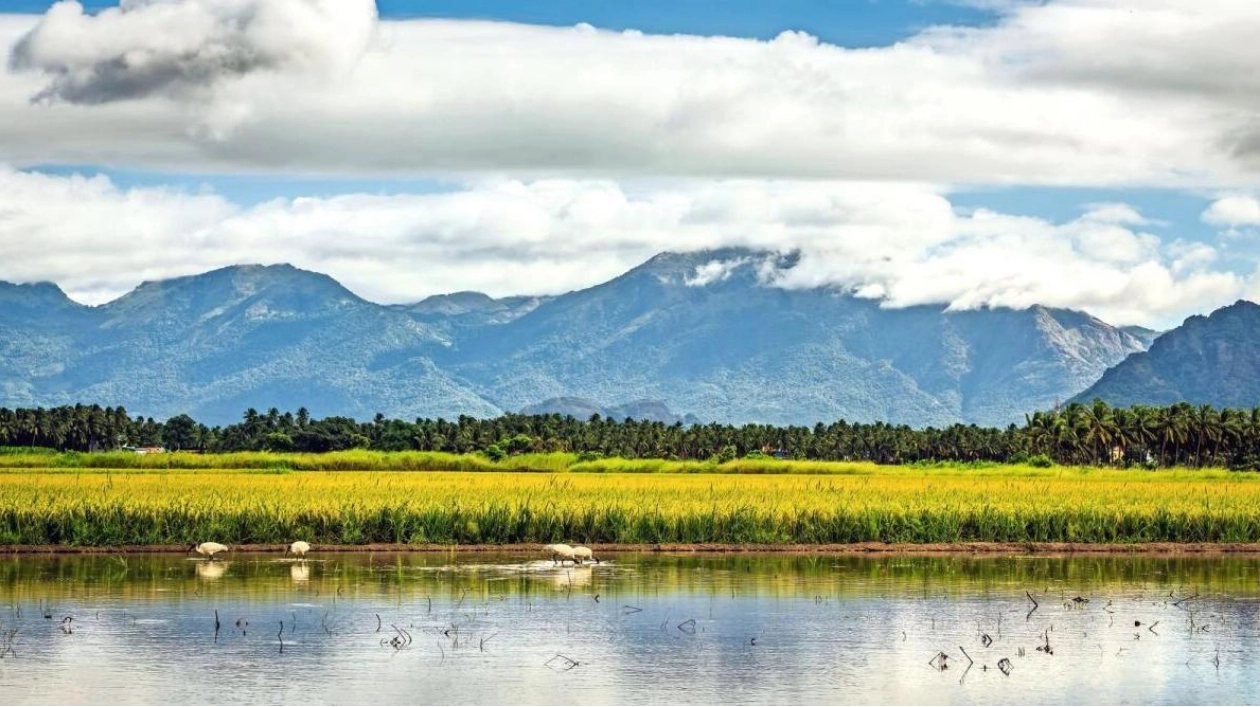I awoke to the harmonious bird songs at Honey Pot Homes, a delightful homestay in Mercara, Coorg, Karnataka, famous for its coffee and spices. Surrounded by vibrant coffee, spice, and fruit plantations, I was deeply immersed in the leisurely pace of country life, embraced by these stunning surroundings.
Shamveel Nizam, the hospitable host of Honey Pot Homes, recently led a group of enthusiastic tourists through his lush plantations. He passionately explains: "At Honey Pot Homes, guests can breathe in the fresh, aromatic air laced with coffee scents. Imagine savoring a meal of freshly picked vegetables and enjoying meticulously brewed coffee that stimulates the senses. The highlight is the chance to hand-pick coffee, spices, and fruits, deepening the connection with nature. It's a unique opportunity to observe the dynamic operations of a thriving farm, explore farming techniques, and discover the rich local culture."
Agri-tourism, also known as farm tourism, is gaining popularity among a new generation of tourists seeking a break from urban stress. This innovative concept has sparked significant interest in the tourism sector, blending agricultural production and tourism. The global agri-tourism market was valued at $42.46 billion in 2019 and is projected to reach $62.98 billion by 2027, showing a compound annual growth rate (CAGR) of 13.4% from 2021 to 2027.
In India, with approximately 141 million hectares of net sown area under diverse agro-climatic conditions, there is a wide variety of habitats. India, with its strong rural roots, is now ready to embrace agri-tourism, with states like Maharashtra, Karnataka, Kerala, and Tamil Nadu leading the way. Agri-tourism combines agricultural production or processing with tourism, inviting visitors to engage in farm activities for entertainment, education, and income generation. In India, agri-tourism is a promising niche, offering unique experiences that combine rural charm with agricultural insights.
To promote this type of tourism, the Government of India has introduced a National Strategy for the Promotion of Rural Homestays, aiming to create self-reliant rural areas. This strategy includes guidelines for rural homestays, providing tourists with authentic local experiences and interactions with the community. This initiative not only explores new destinations but also highlights the importance of preserving agricultural heritage. Agritourism includes a variety of activities and services such as lodging, food and beverage, events, festivals, nature contemplation, U-pick, educational and recreational trips, hunting, fishing, and the sale of goods.
Recognizing the potential of these sectors, the Maharashtra Government has taken pioneering steps to promote them. In 2020, it introduced an agro-tourism policy aimed at reviving the tourism sector and supporting the rural economy. Maharashtra has been at the forefront of implementing and promoting agri-tourism, rural tourism, and sustainable tourism. Pandurang Taware, an entrepreneur from a rural background, was pivotal in pioneering agritourism in India. In 2004, he established the Agritourism Development Corporation (ATDC) in Malegaon, Baramati, Maharashtra, focused on advancing agritourism and supporting sustainable livelihoods for farmers.
Tamil Nadu, known for its major crops like rice, cotton, groundnut, mung bean, urd bean, and sugarcane, is actively promoting its agri-tourism initiatives. The state's Department of Horticulture and Plantation Crops manages 78 State Horticulture Farms across 35 districts, serving as focal points for agri-tourism. Visitors can explore various agricultural environments, witness the cultivation of a wide array of crops, and experience tropical fruits like durian, litchi, and rambutan, showcasing Tamil Nadu's rich agricultural diversity. The inaugural Tamil Nadu Tourism Policy 2023 aims to transform the state's agricultural landscape into a vibrant tourism hub, encouraging agricultural ventures to open their doors to visitors.
Agri-tourism is gaining traction in Kerala, prompting farmers to cultivate vegetables, fruits, and flowers to attract visitors. The Kerala Agri Tourism Network aims to ensure economic benefits for the agricultural community by integrating farming with tourism. Numerous farms and tea plantations offer excellent accommodation options, enhancing the appeal of agricultural tourism experiences. Karnataka is also promoting agritourism, aiming to introduce urbanites to various aspects of agriculture and rural life, thereby increasing farmers' incomes and boosting the tourism economy.
To effectively promote agri-tourism, India can explore various avenues, including diversifying live experiences, adopting sustainable practices, leveraging technology, and enhancing community engagement and government support. By fostering partnerships and improving promotional strategies, India can position itself as a premier destination for agri-tourism, benefiting local economies and preserving agricultural heritage.






